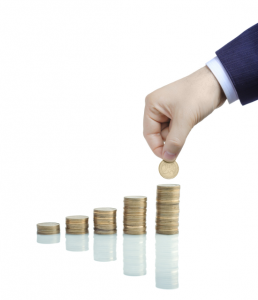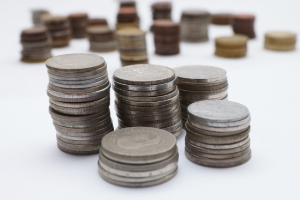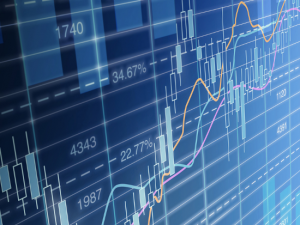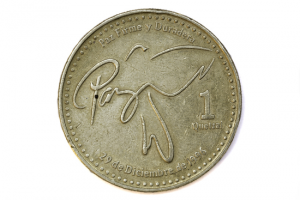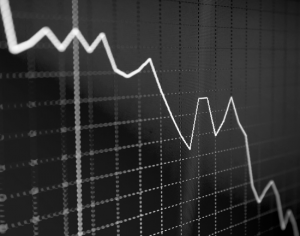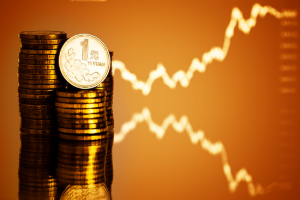On December 29, 2015 Alejandro Maldonado’s government announced a minimum wage increase of 4% for agricultural and non-agricultural activities and 3.5% for export and “maquila” activities. Even though the public sectors workers and unions are celebrating this wage increase—they believe any increase is not enough—the minimum wage increase could be damaging for the general economy, particularly for private sectors.
Click here to continue readingFor some time now Guatemalans have vehemently discussed the idea of differential minimum wages as a measure to attract capital to regions where unemployment rates are higher. The debate seems to have lost its theoretical focus and turned into a political issue. In basic economic theory, differential minimum wages themselves are not addressed.
Click here to continue readingOn December 31, the Hamburg based German investment bank Berenberg issued a recommendation regarding the Varoufakis Effect and the importance it will have in 2016. The Varoufakis Effect refers to a country’s political risk, often times brought about by government officials and owes its name to Greece’s ex-finance minister, Yanis Varoufakis. Berenberg Bank explains how confidence levels in Greece declined during Varoufakis’s time as finance minister and suddenly picked back up upon his resignation. It is important to make mention of the fact that, in response to this theory, Yanis Varoufakis himself explained that this correlation doesn’t necessarily signify causation. Such a case can be exemplified in Argentina with Mauricio Macri and his taskforce.
Click here to continue readingThe alarms have sounded with the rise of a new Lehman Brothers, only this time on the other side of the Atlantic. Panic has taken hold of investors and a possible new crisis and subsequent global recession is on the horizon; one similar to that of 2007/2008. Deutsche Bank has presented its 2015 year-end report and the results have shown to be a letdown. The largest German bank has reported its first loss since 2008 and not just any loss, but a loss in the excess of 6.8 billion Euros (compared with a 1.7 billion Euro gain in 2014).
Click here to continue readingSince January 25, there has been constant speculation about the possible devaluation of the quetzal (Q). After Julio Héctor Estrada, who is part of the Monetary Board, was appointed Minister of Finance warning signals about the currency’s devaluation set off in the country’s financial sector. Most alarming, however, is how Guatemala’s Association of Exporters (Agexport)—with whom the minister has close ties—is pressing for an exchange rate of Q8 to the dollar. According to the union, there is an overvaluation of the quetzal; in other words, an undervaluation of the dollar in the country.
Click here to continue readingThe news about the fall in oil prices and the impact it has had on oil producing countries is nothing new. For Mexico, this fall has had a rather notable effect on local currency exchange rates, and in spite of the depreciation of the peso, exportations have not risen.
Click here to continue readingEver since the onset of the 2008 recession, the most important central banks of the world strung up their imaginative sides and came up with a series of steps and measures to not only halt the effects of the devastating liquidity crisis but also devise a plan to boost the economy during its aftermath. One of the less conventional monetary policy measures being taken is the use of negative interest rates. The justification for such a measure is the hope that it will prompt a credit boost in the capital market. With this boost in credit, it is hoped that the economy will follow suit.
Click here to continue readingThe booming increase in China’s economy in recent decades, and now the current downswing, has seen and is currently experiencing very important consequences. This comes as no surprise given the size of its economy. Its contribution to the growth of the global economy in general, and to the demand in commodities, particularly in the last decade and a half, has been quite substantial. Since 2005, China’s economy has consistently accounted for more than one percent of the global economy, having reached a max in the year 2007 at 1.6 percent when its GDP raised 14%.
Click here to continue readingThe yuan’s devaluation against the dollar, the stock markets tumultuous start of the year, and unexpected reactions to new regulations from central authorities: this stumbling of the world’s second largest economy has not sat well with Xi Jinping, who already expressed dissatisfaction with how China’s Securities Regulatory Commission handled last year’s crisis. The stock market’s dismal start in 2016, along with the debut and suspending of the “circuit breaker” system, cost Xiao Gang his job—the very same man who designed it and who, until last week, was the Director of China’s Securities Regulatory Commission.
Click here to continue readingMarch is almost here and Guatemala’s credit card law will soon come into effect. The country’s banks have already been making the necessary changes to comply with the law to prevent delays. The law’s main objective is to end abuses on by the banks when it comes to collecting payment (interest rates and abusive collection practices). However, the law will have negative effects that have mostly gone unnoticed: a price increase in other financial services, and a displacement towards an informal and unregulated market.
Click here to continue readingGet our free exclusive report on our unique methodology to predict recessions

